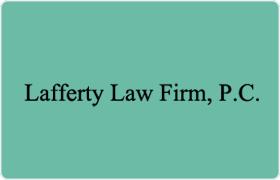Cross Plains Bankruptcy & Debt Lawyer, Tennessee
Sponsored Law Firm
-
 x
x

Click For More Info:
-
Lafferty Law Firm, P.C.
1321 Murfreesboro Pike Suite 521 Nashville, TN 37217» view mapBankruptcy & Debt Over 30 Years Of Experience
Susan S. Lafferty is a CPA and Attorney who enjoys helping people with financial problems. She is located in Nashville, TN where she has lived for over 30 years.
800-936-9071
Mary Beth Ausbrooks
✓ VERIFIEDBankruptcy & Debt, Consumer Bankruptcy
Board Certified Specialist in Consumer Bankruptcy
For more than three decades, the bankruptcy attorneys at Rothschild & Ausbrooks, PLLC, in Nashville, Tennessee, have been devoted to helping individua... (more)
FREE CONSULTATION
CONTACTStormie Gayle Stafford
Credit & Debt, Civil Rights, Family Law, Litigation
Status: In Good Standing Licensed: 39 Years
Josh Dana Hankins
Administrative Law, Credit & Debt, Elder Law, Wills & Probate
Status: In Good Standing Licensed: 15 Years
Steven Francis Glaser
Government, Credit & Debt, Bankruptcy & Debt, Administrative Law
Status: In Good Standing Licensed: 38 Years
Eric K. Fox
Divorce, Consumer Protection, Bankruptcy, Bankruptcy & Debt
Status: In Good Standing Licensed: 23 Years
Mitzi A. Urquhart
Reorganization, Credit & Debt, Bankruptcy, Bankruptcy & Debt
Status: In Good Standing Licensed: 25 Years
 Susan Lafferty Nashville, TN
Susan Lafferty Nashville, TN Practice AreasExpertise
Practice AreasExpertise

